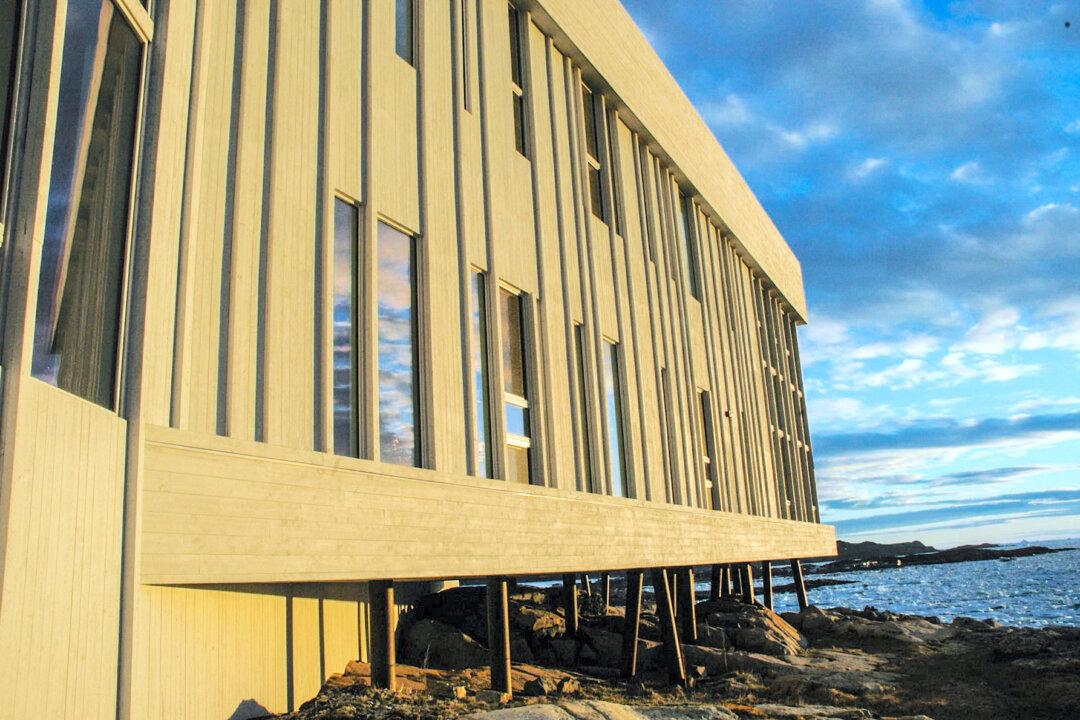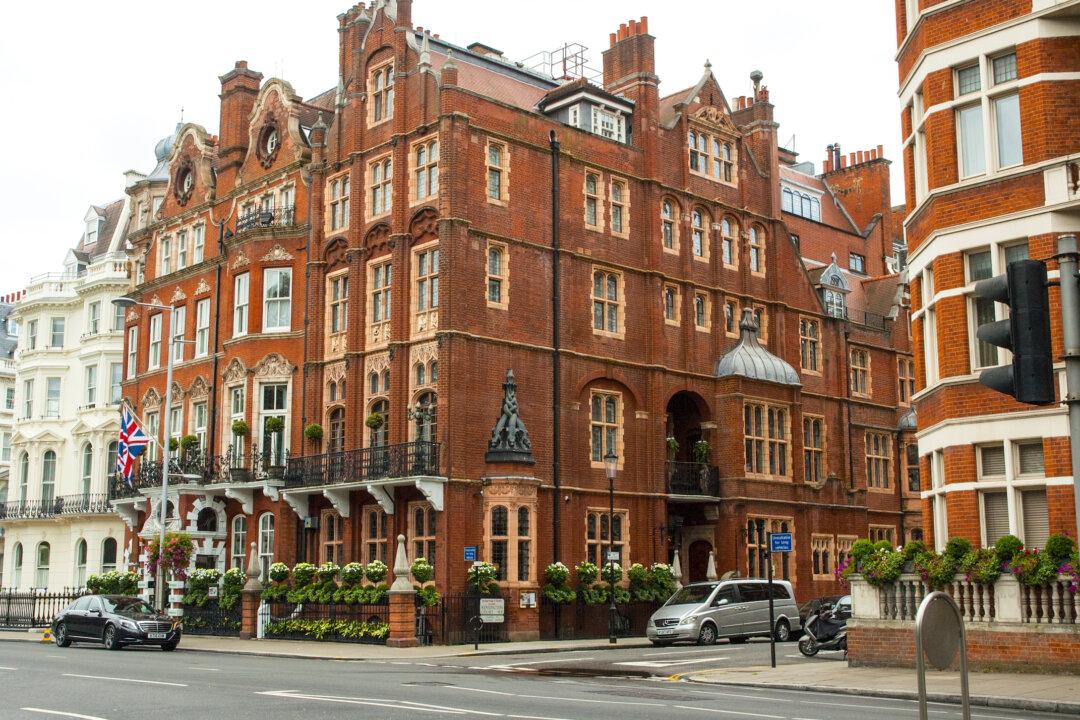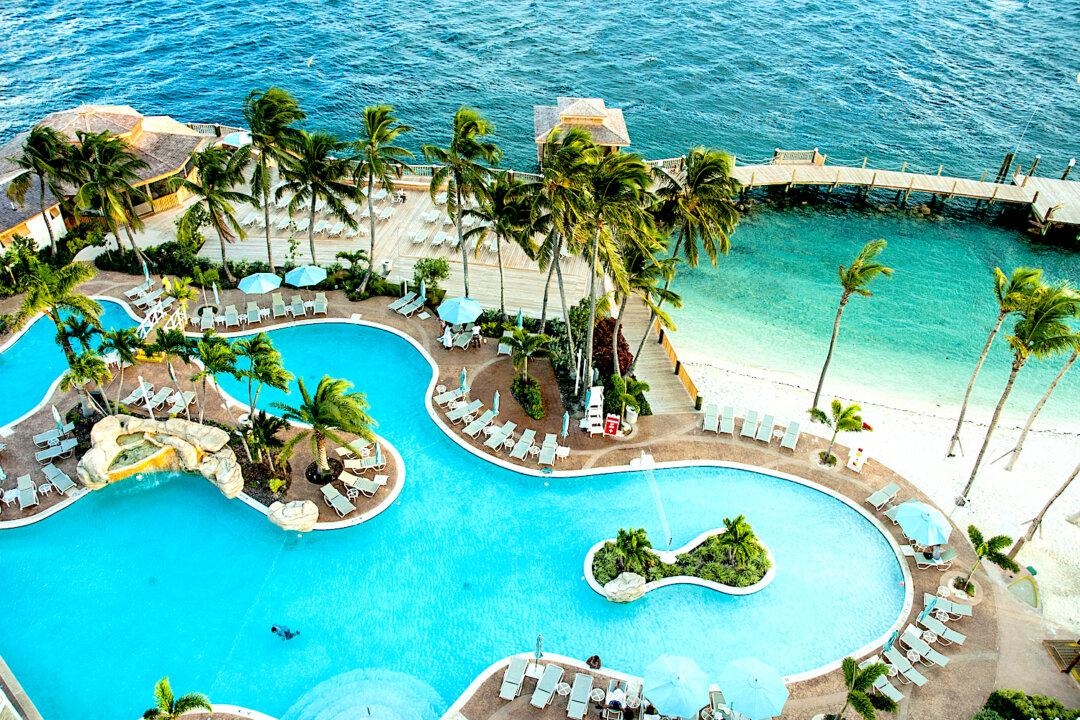FOGO ISLAND, Canada—In order to enjoy the incredible calm of the ocean and the shining coolness of the pack ice stretching into infinity, we left our hotel window open, facing the Atlantic Ocean at Joe Batt’s Arm on Fogo Island, Newfoundland’s largest island.
The islands in the distance looked like humpback whales, their top half covered in fog.





